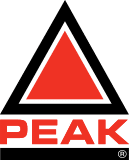Six Steps to Better Communications with Your Engineering Manager and Colleagues
By: Leslie Stevens-Huffman
Knowledge workers spend at least 28 hours each week writing emails, searching for information and collaborating internally, according to a report by McKinsey Global Institute.
With so much time spent on communications, it’s easy to see how your career and performance could suffer if you don’t find an effective way to exchange information with your manager and fellow engineers. In fact, great communications skills have been called a “considerable advantage” by Earl H. Dowell, Dean of Engineering at Duke University.

Are your communications skills a valuable asset? Here are six tips that are guaranteed to improve your interactions with your boss and teammates.
Lay the Foundation
To effectively communicate your ideas, you must create a receptive atmosphere. Building relationships with your boss and co-workers when you start a new job or contract assignment will foster familiarity, reduce stress and set the stage for open discussions, said Dave Hill. He’s a former engineer-turned-communications expert, and president of Dave Hills Speaks.
“Arrive at meetings 10 minutes early just to shoot the breeze with your fellow engineers,” Hill said during a phone interview. “I like to tell stories about my personal experiences. It’s a great way to break the tension and build rapport.”
Pick the Right Medium
Email is not the best forum for hashing out ideas or resolving conflicts. And texting is speedy but it’s too cumbersome for lengthy or complex messages.
“Sometimes, you need to pick up the phone or jump on a plane,” Hill said. “Especially when you’re trying to work through difficult issues, such as balancing design, budget and safety concerns.”
“I see it all the time,” he added. “Emails going back and forth, copying too many people. Or people putting the phone on mute during conference calls so they can talk offline. It’s much easier to find common ground when you meet face-to-face.”
In-person meetings give you the opportunity to observe the other person’s body language and receptivity to your ideas. Naturally, you want to tailor your communications medium toward the policies of your firm, your audience’s style and the type of information you’re trying to convey, but when in doubt, follow these helpful tips for project managers.
Understand the Situation
It’s tempting to fire off a quick email based upon a superficial understanding of the situation. But reacting too quickly may result in poorly thought-out responses, confusion and even mistakes. Making sure you understand the core issue before responding to an email or question will save you time and headaches in the long run.
Prepare
Preparation enhances your ability to communicate in any forum or medium. Defining the topic or the issue that needs to be addressed and jotting down a short list of key points will allow you to shift gears, refocus and improve your communications effectiveness. As Christian Knutson, P.E., PMP, an international infrastructure development program manager, engineer, and author confirmed in this article for ENGINEERING.com, “I find that without mental preparation before a scheduled meeting or telephone call, or the conscious thought to concentrate on what I’m hearing, it’s nearly impossible for me to leave an engagement with tangibles.”
Be Brief and Concise
When it comes to day-to-day communications, the fewer words the better. As Simon Bucknall points out in this list of communication tips for construction engineers, to keep your audience, make one point at a time, simplify complex ideas and condense your thoughts.
Listen Up
Did you know that effective communications is more about listening than talking? Some say that’s why we have two ears and only one mouth. Set distractions aside, focus on the other person, engage in the conversation by asking questions and restating key points and messages. Also, make a practice of pausing before you respond to a colleague’s comments or questions, so that a) it’s clearer to him or her that you were actually listening, and b) so that you can formulate an appropriate response.
“Listening to people shows respect and helps build trust,” Hill said. “It’s a key ingredient in building rapport. After all, everyone wants to be noticed and acknowledged.”
Other information of potential interest
Convince Your Project Manager to Give You More Responsibility
How to Engineer a Productive Relationship with a Recruiter
Defining the Ideal Resume for Contract Engineers
Five Tips for Landing Repeat Assignments
How to Create a Personal Brand to Promote Your Engineering Skills
Help PEAK find the right placement for you: Submit or Update your resume.

